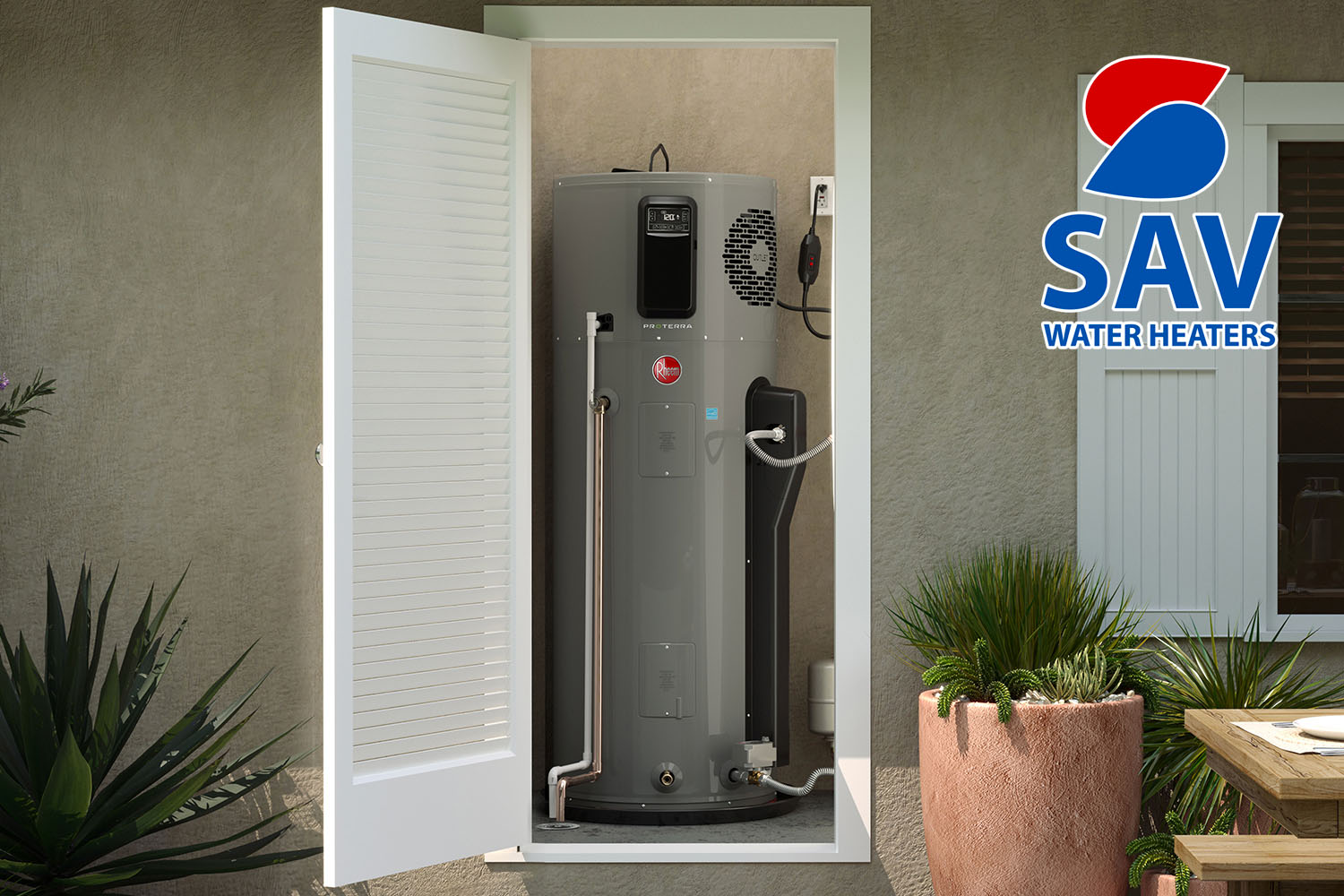As homeowners become more conscious about energy efficiency and environmental impact, choosing the right water heater is more critical than ever. Hybrid water heaters (also known as hybrid heat pump water heaters) are becoming increasingly popular, but how do they compare to traditional water heaters? In this guide, we will break down the advantages of hybrid water heaters, compare their cost and efficiency with traditional water heaters, and help you decide which is the best option for your home.
What is a Hybrid Water Heater?

A hybrid water heater, often referred to as a heat pump water heater, is a combination of conventional water heating technology with a heat pump. The heat pump draws in warm air from the surrounding environment, compresses it, and transfers the heat to the water stored in the tank. This method is far more energy-efficient compared to traditional heating methods.
Hybrid heat pump water heaters are designed to reduce energy consumption by up to 60%, making them an attractive option for homeowners in places like the San Francisco Bay Area, where energy costs are high. For homeowners comparing hybrid water heater vs traditional water heater options, this energy savings could translate to significant cost savings over time.
How Does a Traditional Water Heater Work?
A traditional water heater uses either gas or electricity to directly heat the water stored in a tank. While traditional models are often less expensive upfront, they are not as energy-efficient. Gas-powered water heaters tend to be less efficient than electric ones, though they generally recover hot water faster.
Key Differences: Hybrid Water Heaters vs. Traditional Water Heaters
1. Energy Efficiency
The biggest advantage of a hybrid water heater is its superior energy efficiency. Traditional water heaters typically consume a significant amount of energy since they rely on either gas or electric resistance to heat the water. Hybrid heat pump water heaters, on the other hand, use ambient air to assist in heating the water, which can reduce energy consumption by up to 60% or more compared to traditional models.
For example, a traditional electric water heater may have an energy factor (EF) of 0.9, meaning 90% of the energy consumed goes to heating the water. In contrast, a hybrid water heater can have an EF as high as 3.5, meaning it produces 3.5 times the energy it consumes.
2. Upfront Cost vs. Long-term Savings
One of the main considerations in the hybrid vs traditional water heater debate is the initial cost. Hybrid water heaters tend to be more expensive upfront, often costing around $1,200–$2,500, while traditional water heaters can range from $500 to $1,500, depending on the size and type.
However, the long-term savings with a hybrid water heater can be substantial. Given the energy-efficient nature of hybrid water heaters, they often pay for themselves in energy savings within a few years. For example, in areas like the Bay Area, where electricity costs around $0.381 per kWh (as of August 2024), the energy savings with hybrid water heaters can be dramatic over time, especially when compared to traditional electric or gas-powered models.
3. Lifespan
Another crucial factor is lifespan. Both hybrid water heaters and traditional water heaters tend to last about 10–15 years. However, hybrid water heaters generally require less maintenance, which can contribute to a longer, more efficient lifespan in some cases.
4. Environmental Impact
Given their energy efficiency, hybrid water heaters have a much lower environmental impact than traditional models. Since they draw heat from the surrounding air, they use far less electricity or gas. In regions like California, where energy sustainability is a top priority, hybrid heat pump water heaters are an excellent option for reducing household carbon footprints.
5. Performance
When comparing performance in homes with high hot water demand, traditional gas water heaters may still hold a slight edge in terms of recovery time (the speed at which the water heater can heat new water). However, hybrid water heaters now come in various sizes and offer comparable performance for most households, especially in warmer climates like California.
Is a Hybrid Water Heater Worth It?
Hybrid water heaters are a fantastic investment for homeowners looking to save on utility bills in the long run. While the upfront cost of a hybrid water heater may be higher than a traditional water heater, the long-term savings, energy efficiency, and reduced environmental impact make it a smart choice.
In California, especially in places like the San Francisco Bay Area, where energy prices are high, switching to a hybrid water heater can provide substantial savings over time. The key is to consider your hot water needs, the climate of your location, and your budget for both installation and ongoing utility costs.
When Should You Replace Your Water Heater?
If you’re unsure whether to upgrade to a hybrid water heater or stick with a traditional water heater, there are a few telltale signs it may be time for a water heater replacement:
- Frequent repairs
- Rusty water or sediment build-up
- Inconsistent water temperature
- Increased energy bills
- Leaks or tank corrosion
Conclusion: Hybrid Water Heaters vs. Traditional Water Heaters
At the end of the day, the decision between a hybrid water heater and a traditional water heater comes down to your energy goals, budget, and specific household needs. While traditional water heaters may be less expensive upfront, the long-term energy savings and environmental benefits of a hybrid water heater make it a worthwhile investment.
For homeowners in the Bay Area, especially in cities like San Jose, Palo Alto, Fremont, and Cupertino, upgrading to a hybrid heat pump water heater can significantly lower your energy bills, offer better performance, and contribute to a more sustainable home.